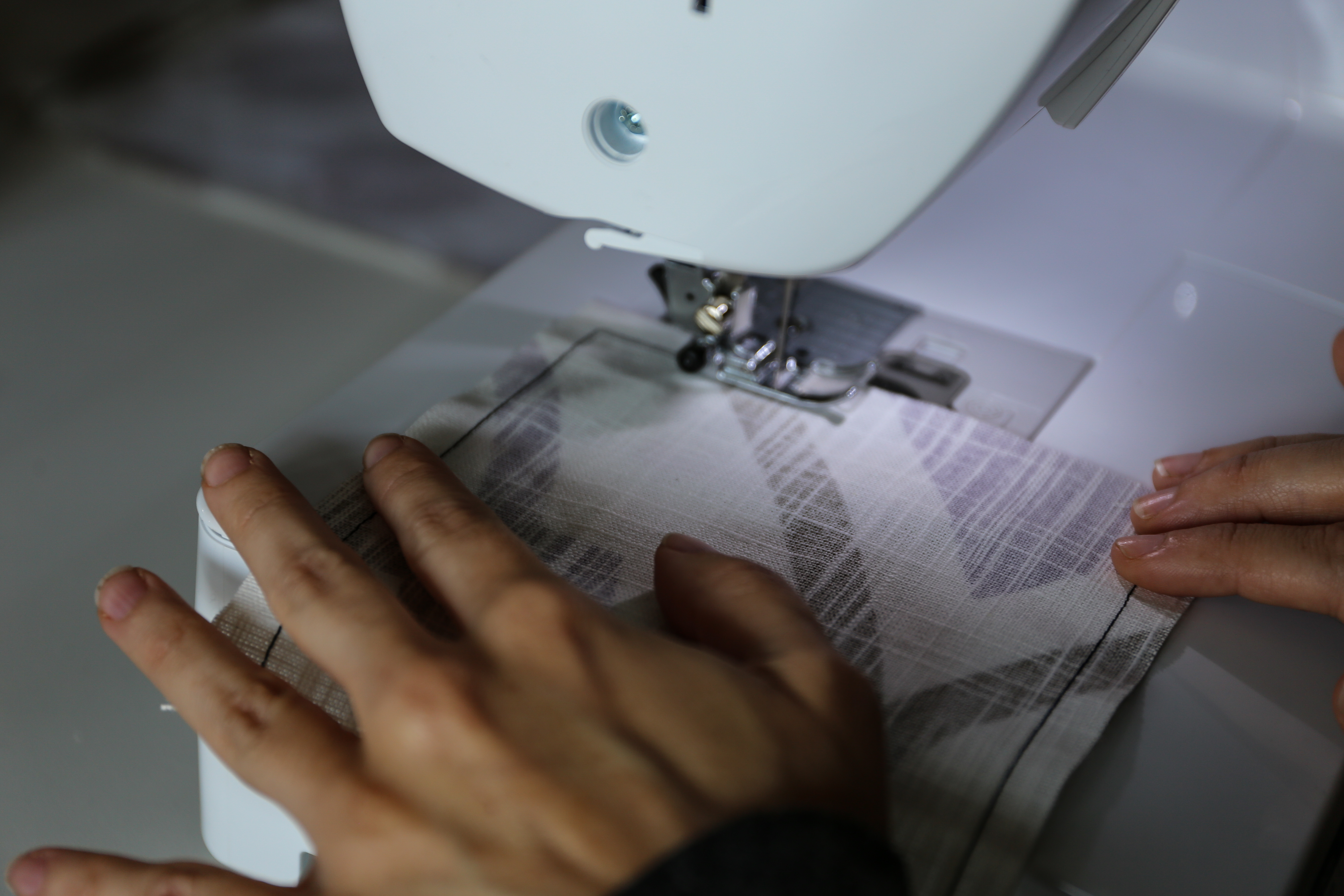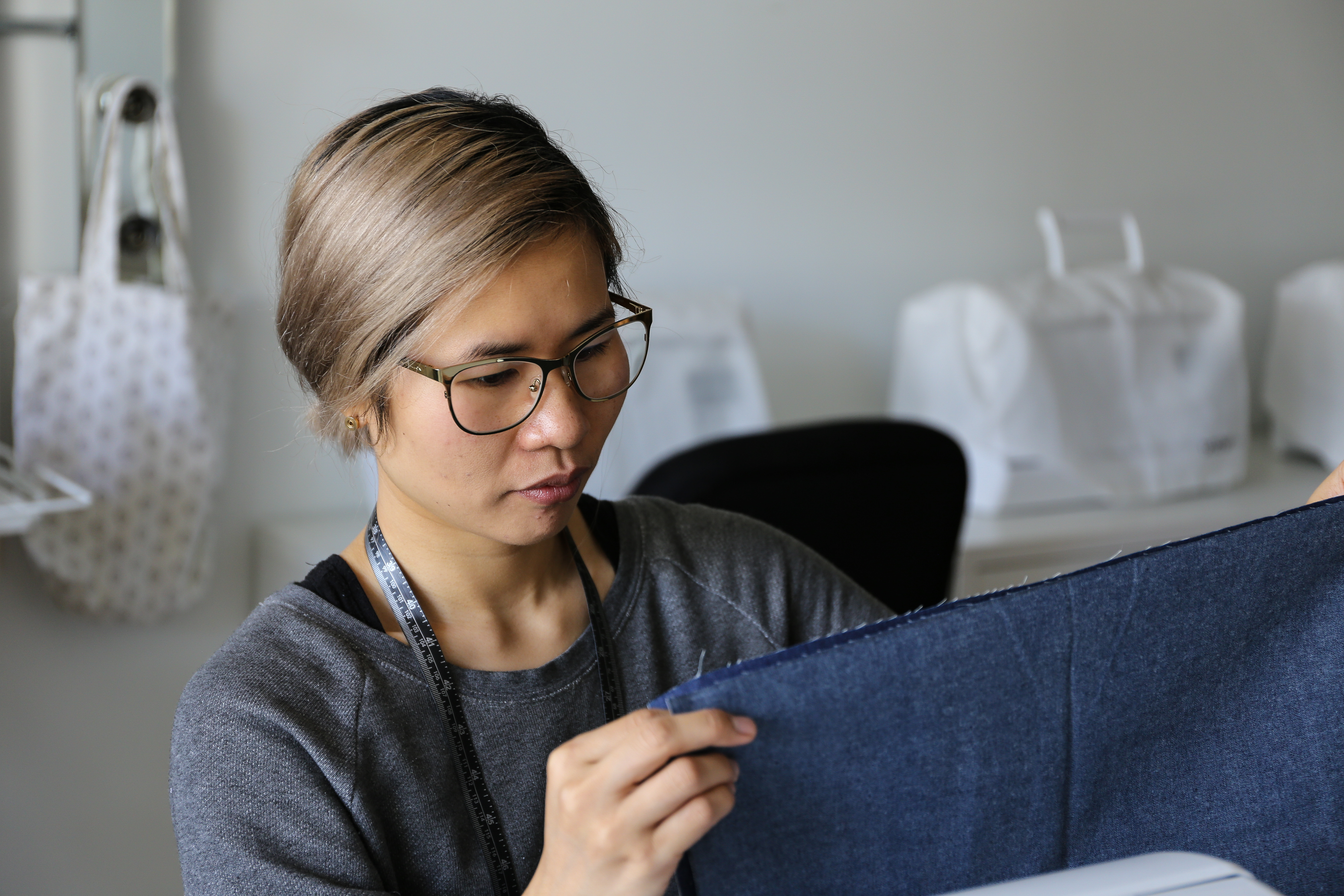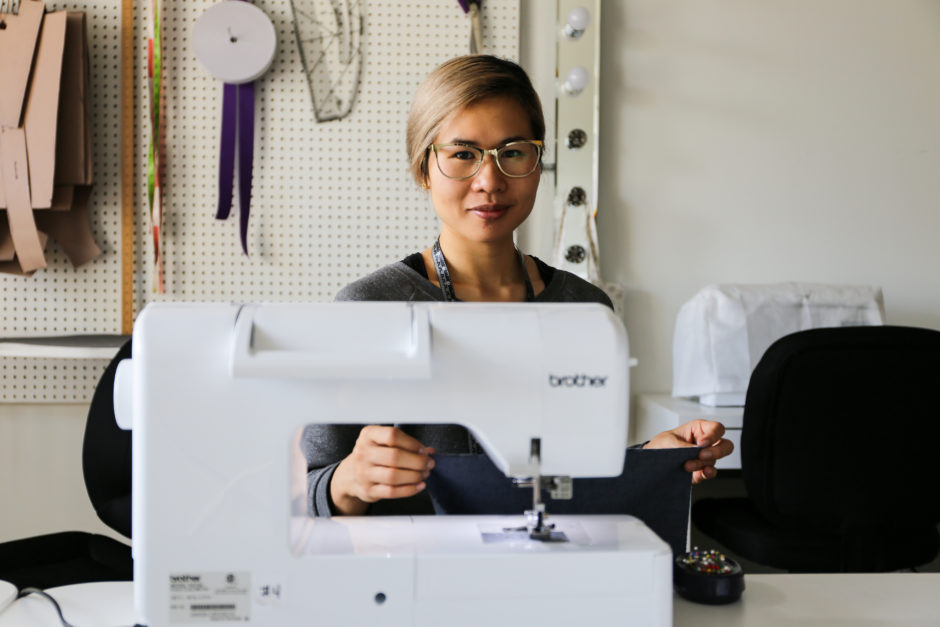September 2, 2019
The sewing machine hums as Beverly Gan guides a piece of fabric under the needle with a watchful eye. The 36-year-old has been sewing since she was a little girl—Gan’s mother was a seamstress who used to make clothes for her daughters.
“I used to hate it at the time because who wants to wear the same thing their sister is wearing?” Gan says.
But as she got older, Gan grew to love designing and sewing clothing. The passion led her to study fashion design at Istituto Marangoni in London, U.K. She returned to Edmonton in 2014, and says friends would often ask her where they could take sewing classes.

Central Sewing Machines and Johnson's Sewing Centre & Quilter's Dream were always go-to suggestions, but Gan wanted to offer sewing instruction in conjunction with fashion design. She opened The House of Sew in 2016.
“I just wanted to provide an opportunity like I was given,” she says. “I think building up my home city is way more important than me trying to [start a business somewhere else].”
Now Gan offers classes for beginners to experienced sewists, tackling projects like dressmaking, bow ties and clutches. Students can also learn fashion sketching and pattern design at the downtown studio.

Robyn O’Brien made a 1950s-style circle skirt in Dressmaking 101 at The House of Sew. Before the class, she had hemmed a few pairs of pants but hadn’t made anything she could wear or use.
O’Brien signed up for the sewing class so she could learn how to mend clothes and create functional pieces.
“I think being able to repair the things you have ... and having confidence to be able to make clothing that fits your body is incredible,” O’Brien says. “It is a lost art.”
Gan uses her business as a platform to educate students about sustainability and ethics in fashion, talking about everything from supply chains and labour costs, to how fabric is made and why some T-shirts are $5.

Gan says sewing has become more popular as the slow fashion movement gains momentum, and she is opening up a bigger studio in west Edmonton this November to accommodate a growing demand.
“There are more people [who care] about the amount of waste that is being introduced into our environment,” says the fashion designer, who wants people to experience what’s involved in the fabrication of everyday garments.
Gan says being able to make and mend your own clothes, instead of constantly cycling through new pieces, is empowering.
“Even if you never want to come back to The House of Sew … at least I hope it will change the way you think about consuming,” Gan says.
“I think being able to be self-sustaining is a huge part of making the world a little better.”

